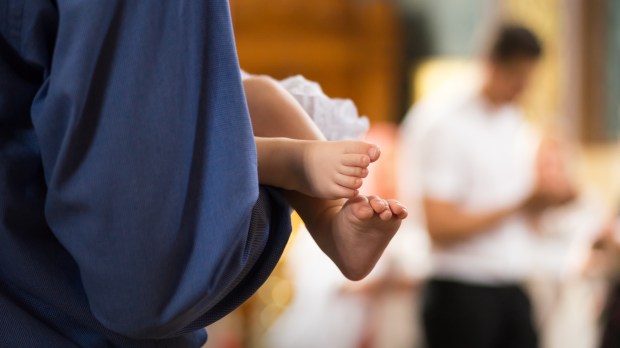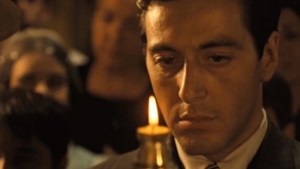It’s an angle headline writers can hardly refuse: a bishop in Sicily has imposed a three year ban on godfathers at Catholic baptisms.
“Godfather whack!” opened a headline in the New York Post.
“In the Land of the Godfather Comes a Ban on Them,” heralded the New York Times, which wrote: “Church officials warn that secularization more than anything led them to rub out the godparents.”
Msgr. Salvatore Genchi, vicar general of the Archdiocese of Catania, in eastern Sicily, estimated that 99% of the godparents in the area are not qualified for the role, which assumes that such elders be able to set a good example for the baptized.
Primarily, the problem is creeping secularism in society and among members of the Church, the Times explained. But there is a concern about the Mafia as well.
“Church officials argue that the once-essential figure in a child’s Catholic education has lost all spiritual significance,” said the newspaper. “Instead, they say, it has become a networking opportunity for families looking to improve their fortunes, secure endowments of gold necklaces and make advantageous connections, sometimes with local power brokers who have dozens of godchildren.
“God parenting, Church officials said, had fallen to earth as a secular custom between relatives or neighbors — many deficient in faith or living in sin — and was now a mere method of strengthening family ties.
“And sometimes mob ties, too,” said the Times.
Italian prosecutors have tracked baptisms to map out how underworld bosses spread influence, and mob widows in court have saved their most poisonous spite for “the real Judases” who betray the baptismal bond. It is a transgression most associated with, well, The Godfather, especially the baptism scene when Michael Corleone renounces Satan in church as his henchmen whack all of his enemies.
Msgr. Genchi spoke of the ban as a temporary experiment, giving the Church time to better form parents and potential godparents. The three years is much shorter in length than a proposed ban another bishop had in mind in 2014, of 10 years. That proposal did not gain the needed consensus of fellow bishops in the region.



